Mass Effect 2 Review
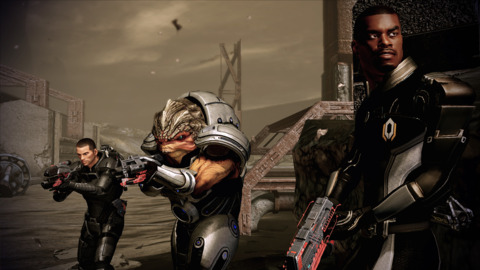
But there was a disheartening counterpoint to every one of those great elements. The combat and RPG mechanics fell short of their potential with clunky controls, an overwhelming list of special abilities, and unwieldy inventory management. Outside of the fine storyline, the side missions and explorable planets were frustratingly repetitive and generic. An often embarrassing frame rate and constant, glaring texture pop-in bespoke a general lack of technical polish throughout the game. And don't even get me started on that Mako. Mass Effect was anchored and propelled by the strength of its sprawling fiction, but in a lot of ways, it was a hard game to love.
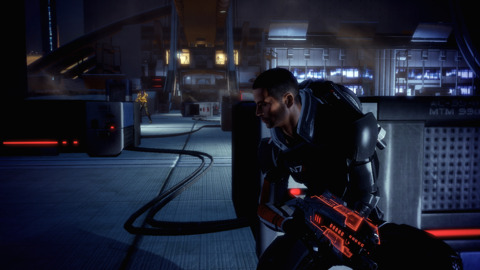
The game opens with a bang directly after the events of the first game, and quickly finds Commander Shepard in very different (and much more dire) circumstances than he, or she, was involved in last time. If you've made it this far without finding out exactly what sort of situation Shepard is in, I might as well help preserve the surprise a little bit longer. Let it suffice that the predicament is grim, and you'll find yourself working for, and with, some far less savory and perhaps less trustworthy people than the Citadel bureaucrats and special agents you're used to. The story gains momentum and intrigue from this fundamental shakeup, and you get a more colorful cast of characters to work with thanks to the relative lawlessness you're operating in. There's a breakneck pacing to working on the fringes of the galaxy, and of galactic society, that really grabbed me and pulled me right along for the ride.
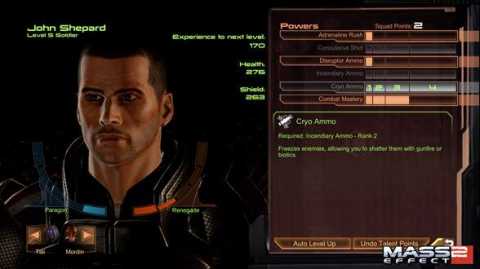
Like in the first game, you can still pause the action and dole out commands to your squad mates if you want. I was an unapologetic pauser last time around, but I almost never used that feature in this game, since you can now map a lot more of your and your allies' attacks directly to the controller buttons and D-pad, and you can also tell them where to move and what to attack. Thanks to the improved feel of the controls, the ability to pop off special abilities left and right at the touch of a button without interrupting the flow of the action, and a far more consistent and smoother frame rate, the combat here feels a hell of a lot faster-paced and more exciting than it did last time around. You may never want to pause it again, either.
Longtime BioWare fans should know that Mass Effect 2 feels like less RPG and more shooter than its predecessor did--but they should also know that's explicitly a good thing. The unwieldy, top-heavy RPG mechanics that burdened the first game are gone, replaced by a streamlined system that removes the busywork from outfitting your characters and lets you just get on with your damn mission. Instead of throwing dozens of new weapons and armor suits at you, and forcing you to compare obscure stats between them to figure out which ones you should be using, the game reduces its arsenal to the bare essentials. And it's better for that simplicity.
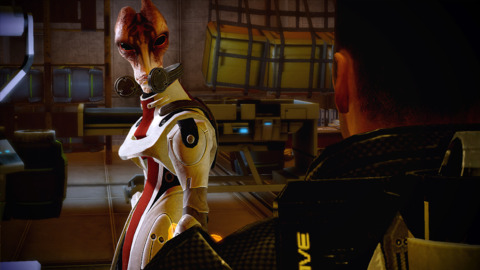
Don't mistake all this simplification for dumbing down. The role-playing elements that matter are still here, tied into your interactions with your ship's diverse crew and the galaxy's wild menagerie of alien beings. The brilliant in-line conversation wheel, probably the best thing about the first game, is back in effect, and you could spend hours and hours just chatting it up with every turian, asari, and elcor you encounter on each of a dozen primary worlds and space stations. The real stand-outs are the people on your own crew, though. The majority of the storyline consists of Shepard's attempts to recruit a crack team of experts to tackle his dire new mission, and that gives you a lot of time to get to know all of the new characters that come aboard the Normandy. From a monastic, philosophizing reptilian assassin to a hilariously motormouthed salarian doctor to the ship's all-business talking AI component, everyone in your squad is exceptionally memorable. In fact, I grew more attached to them by the end of the game than anyone from the original, despite the fact that there are more of them to remember this time around. And yes, you can get it on with plenty of them if you're so inclined.

Even aside from those main side quests, there's plenty to keep you busy if you want to take a break from the storyline, and unlike last time, it's actually varied and interesting. There are scores of planets in the game to investigate--but the big difference is, you can't land on them if there's nothing fun to do there. You can scan those barren planets from orbit with a slightly tedious minigame to find rare elements that you can cash in for upgrades to your weapons and special abilities. When you do find a side mission to pick up, you take a shuttle straight down to the action instead of driving some ill-conceived ATV there. These missions are usually only 10 to 20 minutes long, but even they all feature unique maps and storylines, however brief. Some of them even chain into little two- or three-part quest lines of their own. There are dozens of hours of content packed into a single play-through here, and that's assuming you don't want to go back and play it again as a bad guy, or a female, or in some other way that differs from your initial run. The differences in player classes are significant enough that the combat will have a distinctively new feel when you play again, and the chance to carry over levels and other bonuses from a previous play-through further sweetens the deal.
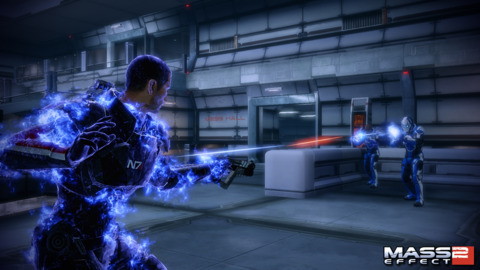
Mass Effect started with a huge stable of good ideas. Maybe the task of executing on all those ideas was too great for any one development team to accomplish in a single game, but BioWare has really gotten it right the second time around. They took those same ideas and figured out a better way to combine them into a more cohesive, more playable sequel that makes good on every bit of Mass Effect's potential and leaves me staring very grudgingly at the presumable two-year wait until my own Commander Shepard can continue his fight in the next game.
